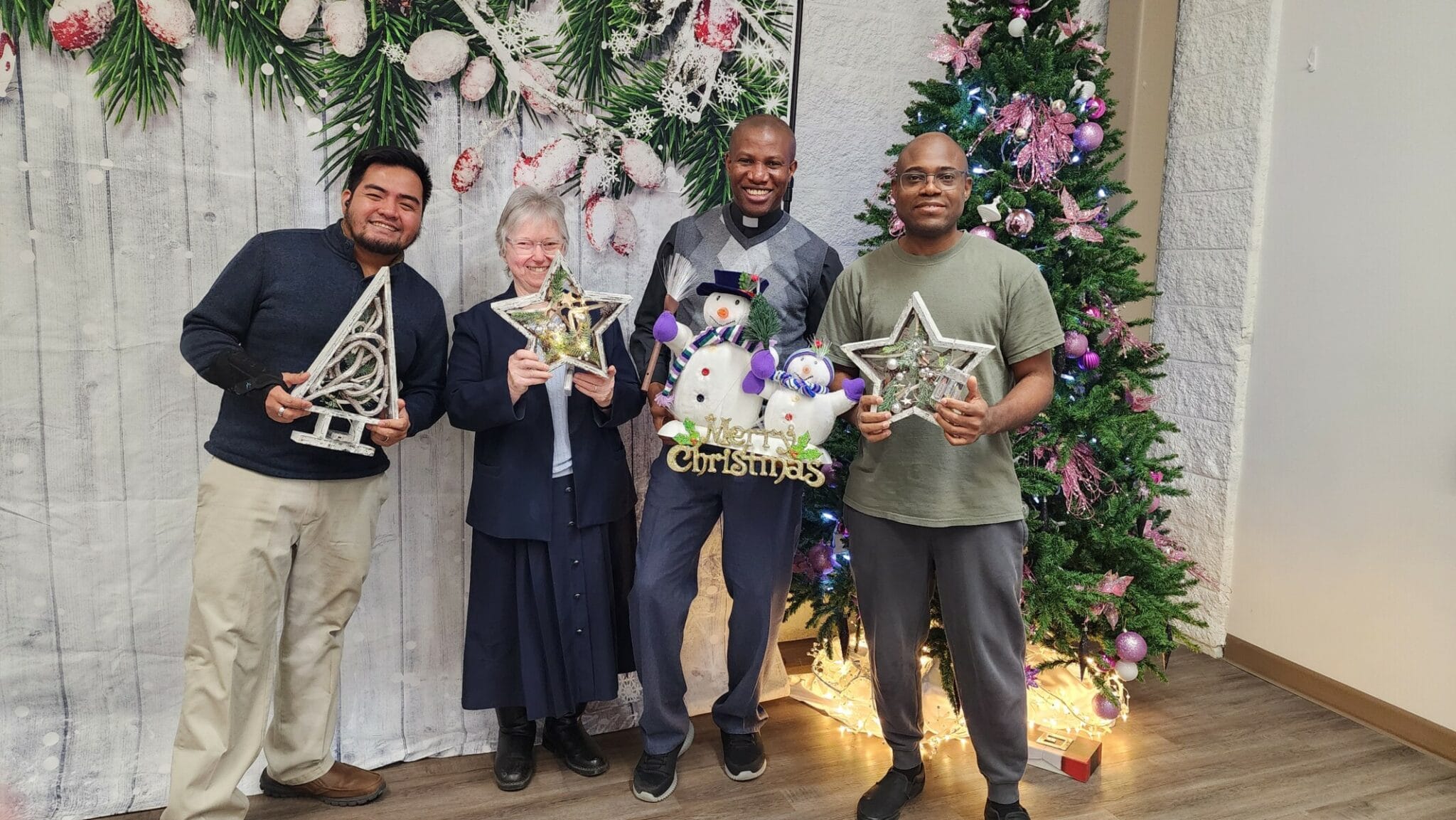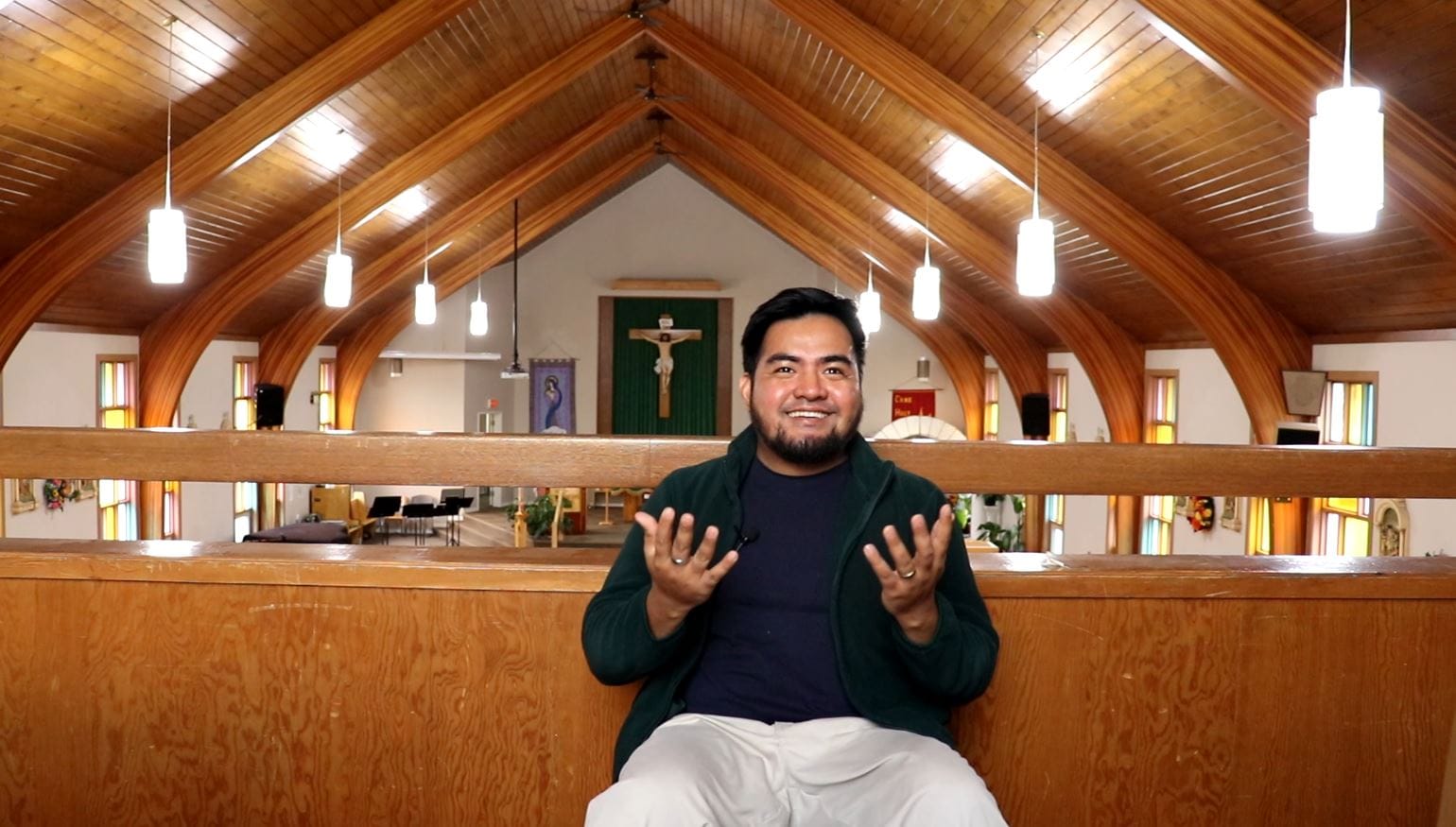
Open to whatever God gives me
RJ Mallannao reflects on his decades long journey towards the priesthood
Rudy Jerome Mallannao’s journey to the priesthood has been beset with many trials.
Through each of them he has remained steadfast, never losing sight of his ultimate goal. As he reflected particularly on the challenges he faced while in seminary, RJ says that fulfillment is not to be found in a life without suffering, but in a life where you choose your suffering.
“Trials, challenges and pains come with every vocation and every profession,” he said. “Joy comes from choosing your pain, choosing your suffering, and I chose the sufferings of the seminary. So even if there were hard times, it didn’t matter. Because this is what I like and this is what I want to do.”
This choice of pursuing the priesthood (and every challenge that comes with it) is one that God had been calling RJ to from his earliest days. Initially, it was through the prayers and witness of his mother that his love for the Church began. She was a staple member of his local church choir in the Philippines, and it was through her influence that RJ became an altar server, a “Knight of the Altar”, at an early age.
Through altar serving, he immediately was drawn to the life of the priest.

“Seeing the priest celebrating Mass, blessing the people, I found it attractive. I thought to myself, ‘I’d like to be like that.’ That’s where the call began,” said RJ.
When he was four years old, RJ was given a toy chalice and host. He would “play Mass” at home, often by trying to mimic the actions of the priest when the family watched televised liturgies. One day while doing this, his aunt propositioned him if he wanted to be a priest.
“That was really the first time I had become aware of the concept of the priest. To me, he was just “father”, the guy at the altar. It did not dawn on me that this was actually a profession and a calling. So I said to her, ‘I’d like to become a priest’.”
His aunt then told him that, as a priest, he would live a life that required considerable sacrifice. He could not get married and have a family, and – particularly in the Philippines – he would have little salary and would have to live off of only what the people gave him. This all came as a shock to the young boy, and from then the idea of being a priest moved further and further to the back of RJ’s mind.
By his teenage years, RJ had already set himself on other plans: being a doctor, nurse or engineer. In his final year of high school he sent applications to various universities. In his mind’s eye he had already determined the number of years he would be in school, what steps he would have to take to advance in his career, and so on.
But, as fate would have it, he was informed that the religious order serving his school – The Alagad ni Maria (Disciples of Mary) – were offering a vocations workshop for graduating students. Because he was one of the school’s only altar servers, RJ was expected to be there. Although he had already determined what his future was going to be, he had little other choice but to attend.
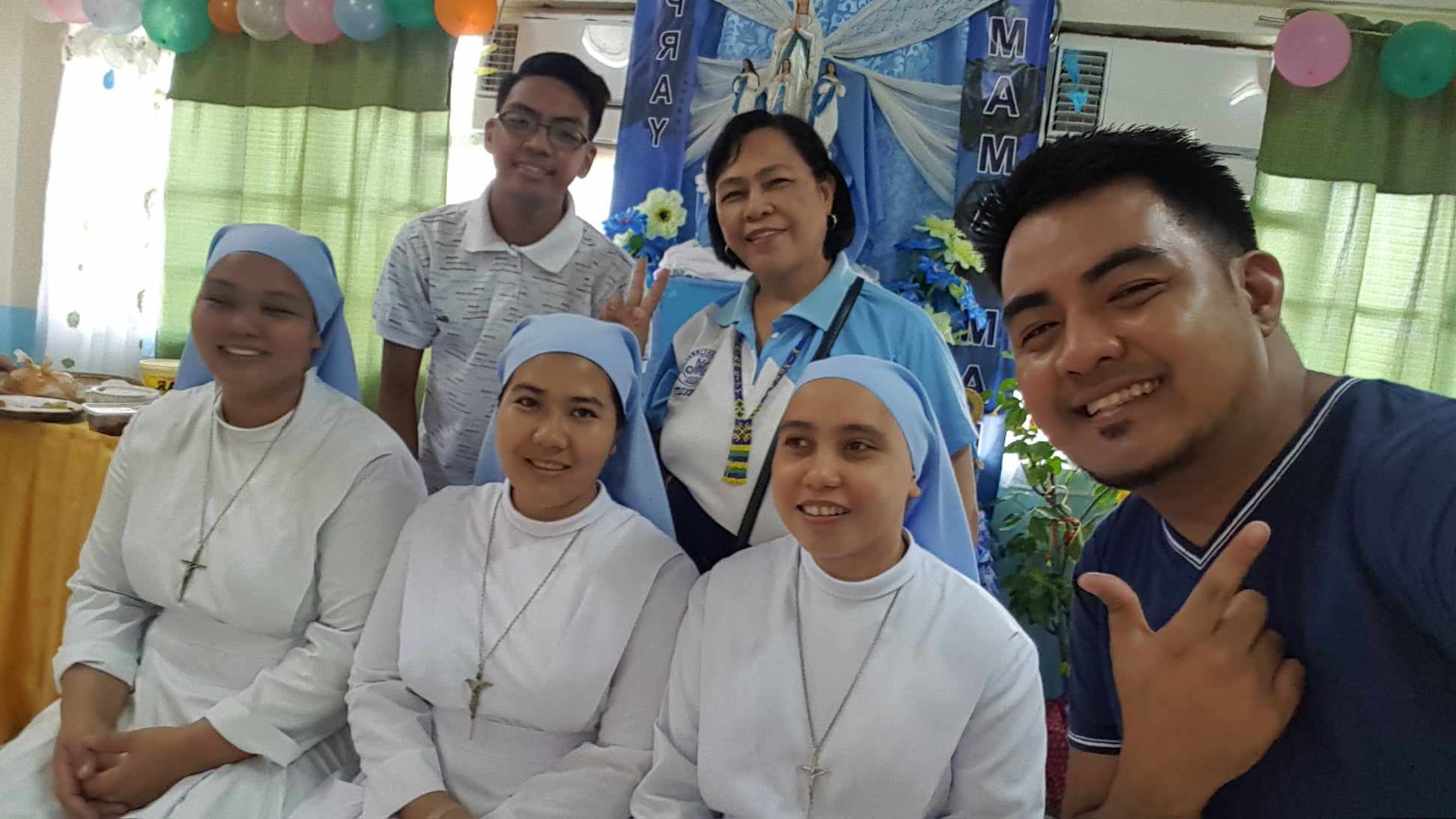
“I had my life plans already set so it was a ‘No’ for me. I didn’t want to go,” he recalled. “At the workshop there was lots of talks, good food, time for prayer together. They had lots of priests who came and gave their stories. But my mindset at the time was, ‘This is not for me,’ and I found it all boring at first.
“But then adoration came. It changed my perception. Suddenly I found myself crying. And I was just thinking, ‘What is happening to me? Why am I so affected?’ I don’t like silence. I don’t like sitting. But here I was, knowing God is in front of me and being totally drawn in. Then that desire from when I was a a kid suddenly came back to me. I thought, ‘Well what if I look into the priesthood? What if I did give it a try?’”
With that, those ambitions of priesthood from his childhood that had been suppressed to his subconscious for so many years now came back with a renewed intensity. An internal battle soon resulted for RJ: the one side calling him to re-consider religious life, the other side reminding him of the financial success and family life he would have to give up to do so. Finally, RJ decided he was going to pursue this renewed calling.
“In the end I found myself wanting more,” he said. “So I told my mom I wanted to try the priesthood, and I gave up all the work I had been doing to prepare for university.”
This decision came with some immediate hurdles. While his mother was supportive, RJ’s father was totally against this vocation. As well, RJ began to receive letters of acceptance from some of the universities he had applied for. He deliberately hid these acceptance letters from his parents – knowing it would make the pressure on him that much greater.
RJ’s father was determined to send him to the military. His father was a police officer and had many friends with a military background, and he had firm plans that this was also the career path for his eldest son. Thus, when RJ completed his high school education at age 17, his parents enlisted him for military training.
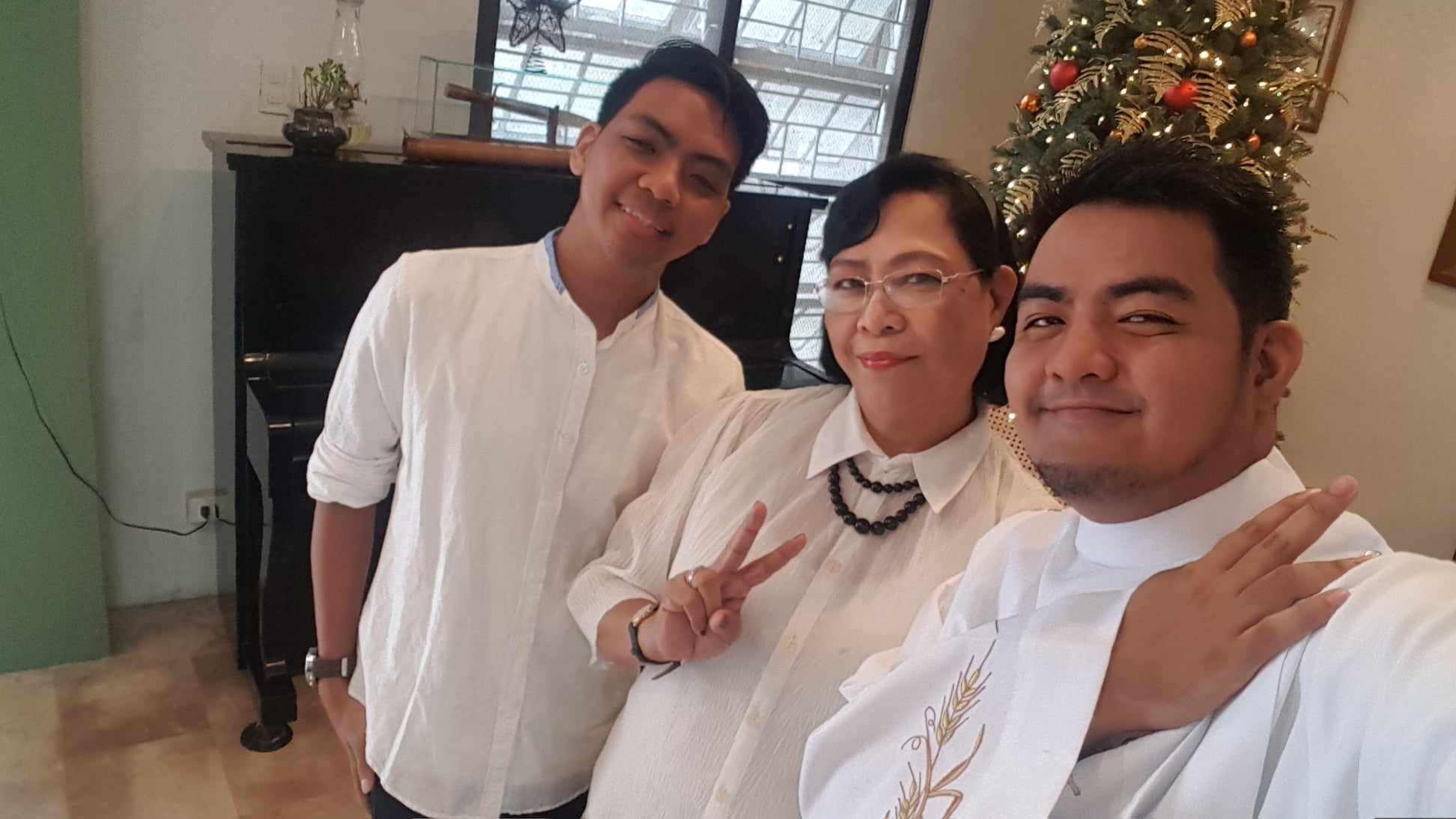
RJ was heartbroken. But he would soon learn God would not leave him abandoned amidst his perdition.
“I was very upset. This was really the first time in my life where I had decided something on my own. I weighed the pros and cons, the thing I would have to give up and sacrifice, and I still really wanted this,” said RJ. “But now I’m thinking, ‘I will be sent to military training and this is over.’ Yet, at the same time, I had this sense that God was preparing something for me.
“On the day I was supposed to leave for military camp, my mom woke me up at 4:30 in the morning. She handed me money and was telling me that she had packed up all of my things to leave for seminary. I was still half asleep and very confused. I said, ‘Well, what about dad?’ And she said, ‘Don’t worry, I will take care of that’. So I got up and left, it was still very dark outside, and I took the bus to seminary. And the whole time I was praying, crying and thanking God.”
But the disapproval of his father was a cross RJ would have to bear throughout the early years of his discernment. After his first break from seminary he visited home and saw his father for the first time since the fateful night he left for the seminary.
“In the Philippines it’s very important we show respect to our elders. We touch their hands to our forehead as a kind of blessing and sign of respect. So I was excited to do that and share my story with my dad about my experiences at the seminary. But when I got home, he just ignored me completely.
“And this went on for another two years. It continued to be a burden to me. Did I make the right decision? Have I divided the family over this? Was I too selfish in doing this? Because now there is this great separation between me and my dad.”
Then after two years in the Alagad Ni Maria Seminary, RJ was received into the novitiate – making his first profession with the religious congregation. While he expected his mother and brother to attend the celebration, to his shock and great joy, his father had also come.
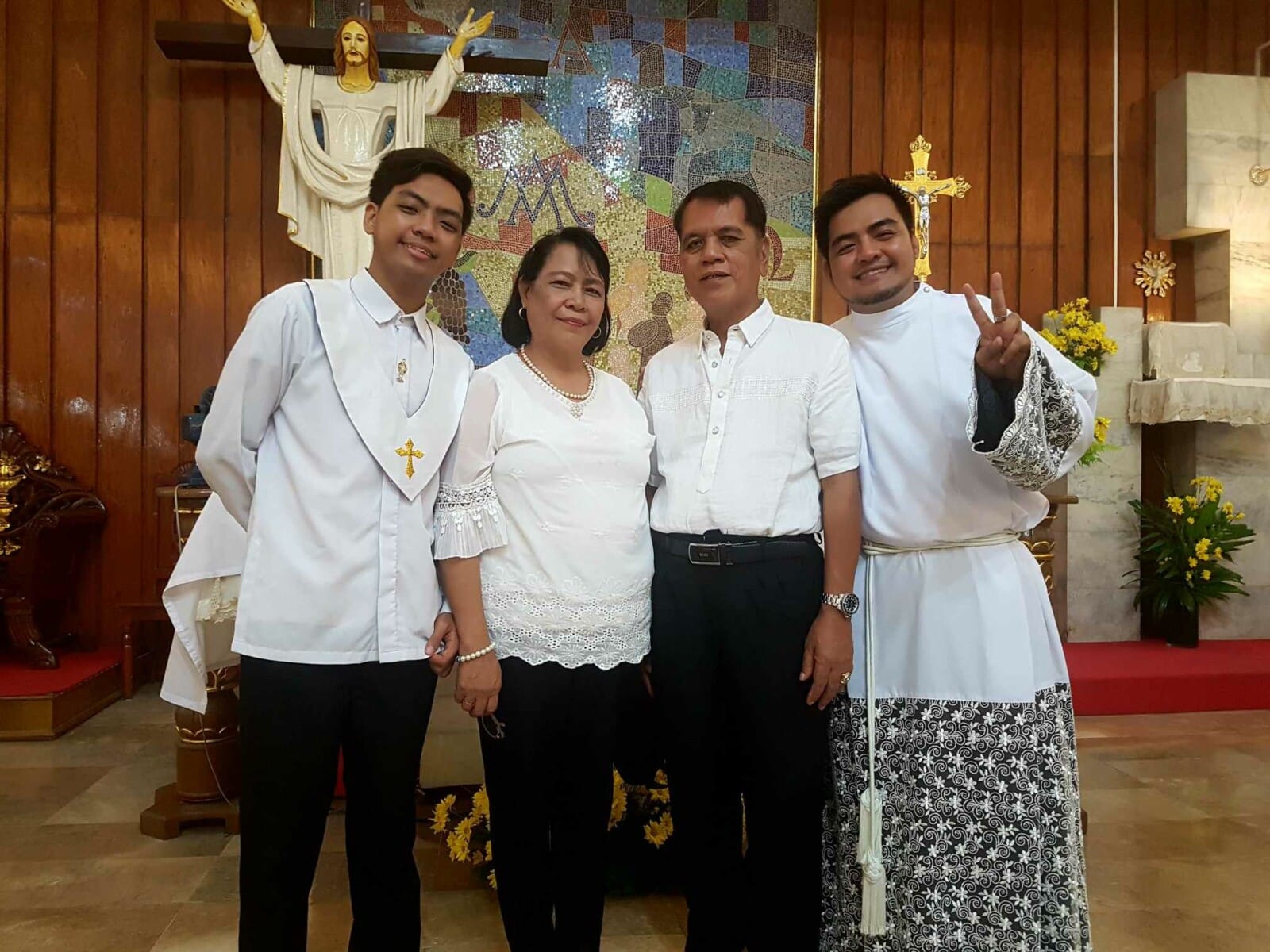
“He spoke to me for the very first time in years. He said, ‘If you’re going to become a boring priest, I won’t attend your Mass,’” RJ recalled. “I had prayed for this moment for two years and out of the blue, God had made a miracle. It had become a big wound in my heart, so I was so happy at that time.”
While this strained relationship was one of RJ’s biggest challenges in seminary, it also came with many joys. The greatest joy of all, he says, was in simply pursuing the life that he felt God was calling him to.
He also got to learn much about the nature of the priesthood. Once, when he was assigned to a parish with an elderly priest, he was awakened late in the night by an urgent knocking at the rectory door. It was a person requesting the last rites for a family member on the verge of death.
“At that time the priest I was assigned with was an older priest and a bit of a grumpy man. So I was worried about having to wake him up, but in my head I was saying, ‘This is part of the job of a priest so if he scolds me it is what it is.’”
He knocked hard enough on the door to wake the priest, who did answer the door angered that he had been so abruptly awoken. But when RJ explained that there was a person there in need of last rites, his demeanor immediately changed.
“He immediately calmed down and said, ‘Okay, let’s go.’ I was shocked that there was such a change and it really inspired me. I realized that this is the job of a priest: it’s not nine to five. It’s whenever the people need you, you are there. That’s the life of a priest.”
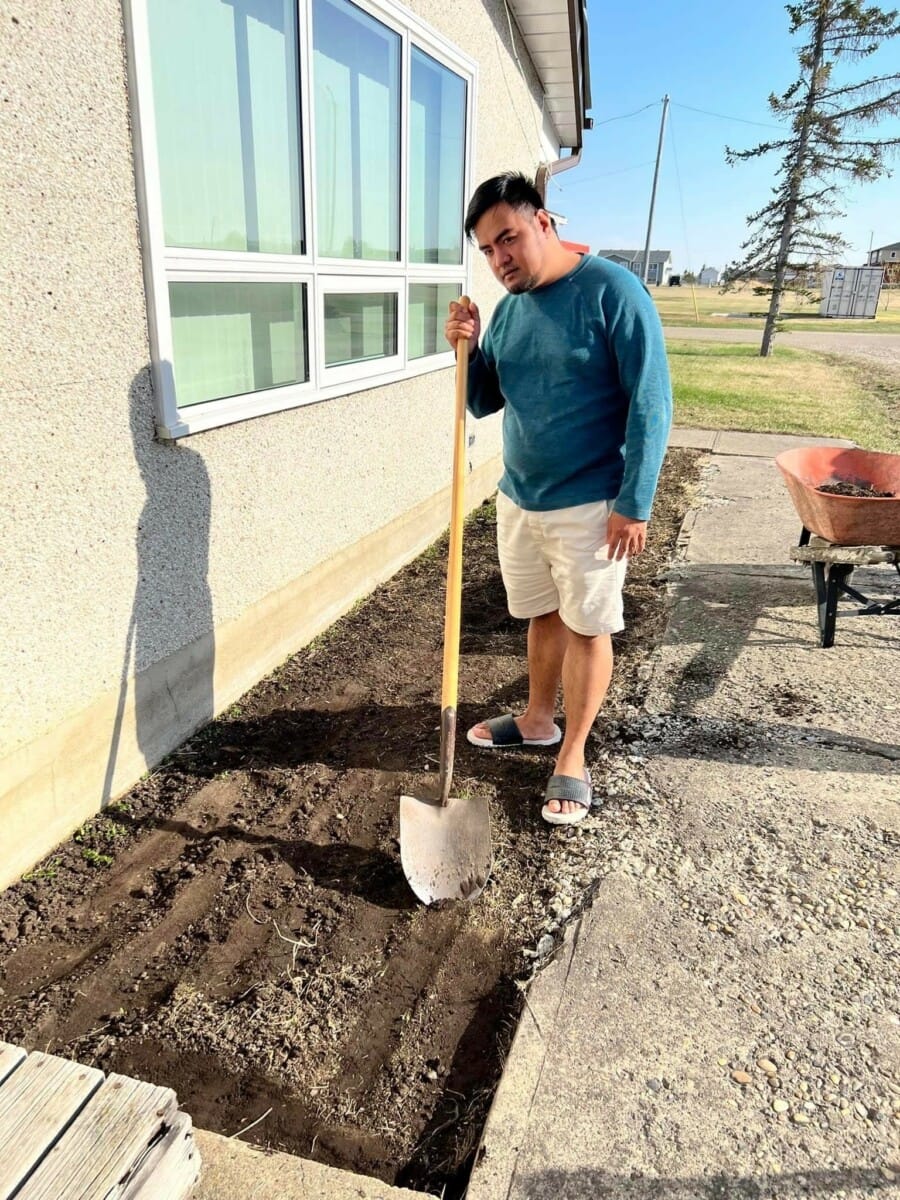
By 2018, RJ had completed his seminary formation and was preparing for the transitional diaconate. But then his life took an unexpected turn – his mother entered a sudden and intense battle with cancer. With his father unable to work and his younger brother away at college, it was up to RJ to step up and support the family. Instead of making his final steps towards the diaconate, RJ put his vocation on pause and spent three years working full time to support the family, cover all their medical bills and pay for his younger brother’s tuition.
“I was asking God in prayer, ‘What did I do? Did I do something wrong?’” RJ recalled. “I wanted to be a priest but now all this has happened and it’s up to me to pay off the medical bills, house bills, tuition and everything else. I worked three jobs just to make ends meet.”
In one year, his mother passed away. Then one year after that, RJ’s father also passed away.
After three years, when all family debts and expenses were finally paid off and his brother graduated, RJ was able to step back from the intense responsibilities placed on his shoulders.
Immediately his mind returned to the priesthood. He was worried that if he didn’t find a way back to pursuing his vocation soon, he may get too comfortable in the “corporate world” and lose his sense of calling to religious life.
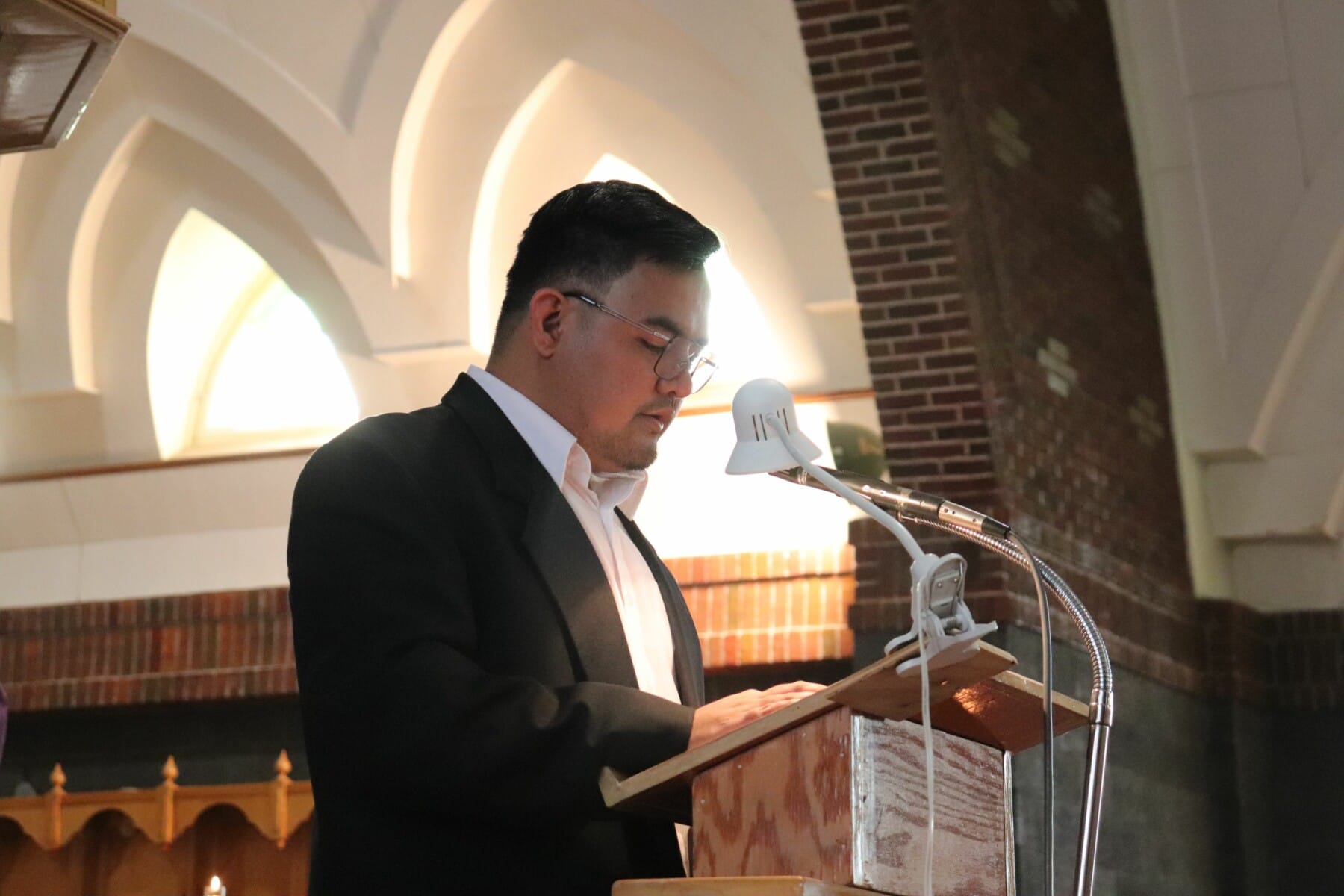
When thinking of ways to continue his formation, RJ now felt called to go beyond his home country of the Philippines, to instead pursue the priesthood in a missionary region – where resources are scarce and evangelization is most needed. As part of the Alagad Ni Maria order, he also developed a strong charism towards youth ministry. So one day he went to his computer and started researching dioceses that met two requirements: they were missionary and they emphasized youth ministry.
He found a video on Camp St. Martin in the Archdiocese of Grouard-McLennan, a diocese in the far away lands of northern Canada. Here was a rural, missionary diocese that also had a flourishing camp for evangelizing youth. RJ was impressed with the video, and he decided to send a letter of intent to the Vocations Director Fr. Michael Uso-Ereyi. In time Archbishop Pettipas sent an e-mailed response and a meeting was scheduled.
“I applied to various countries and got affirmative responses from them, but Grouard-McLennan particularly intrigued me,” he said. “I don’t know if it was God working through me, but I wanted to pursue it.”
This all occurred in early 2022, when stories of alleged unmarked graves were still being reported across Canada and the vandalizing and burning of Catholic churches had become a common trend. Tensions were particularly high in Alberta, where there were many residential schools and multiple churches that had been vandalized and destroyed.
So, with this contentious environment in mind, the very first question the archbishop proposed to RJ in their meeting surely came as a shock to him. The archbishop asked, “Are you willing to enter a battleground?” After a brief pause to adjust to the shock of such a question, RJ answered.
“I just said, ‘Well… yes’,” he recalled. “Because at that time I was really convinced that I wanted to continue pursuing the priesthood, and if this is the opportunity that God is presenting to me, then I will go for it. So I said, ‘If that’s the situation, I’m not going to be afraid. I’m going to go for it.’ And four months later, I was here in Canada.”
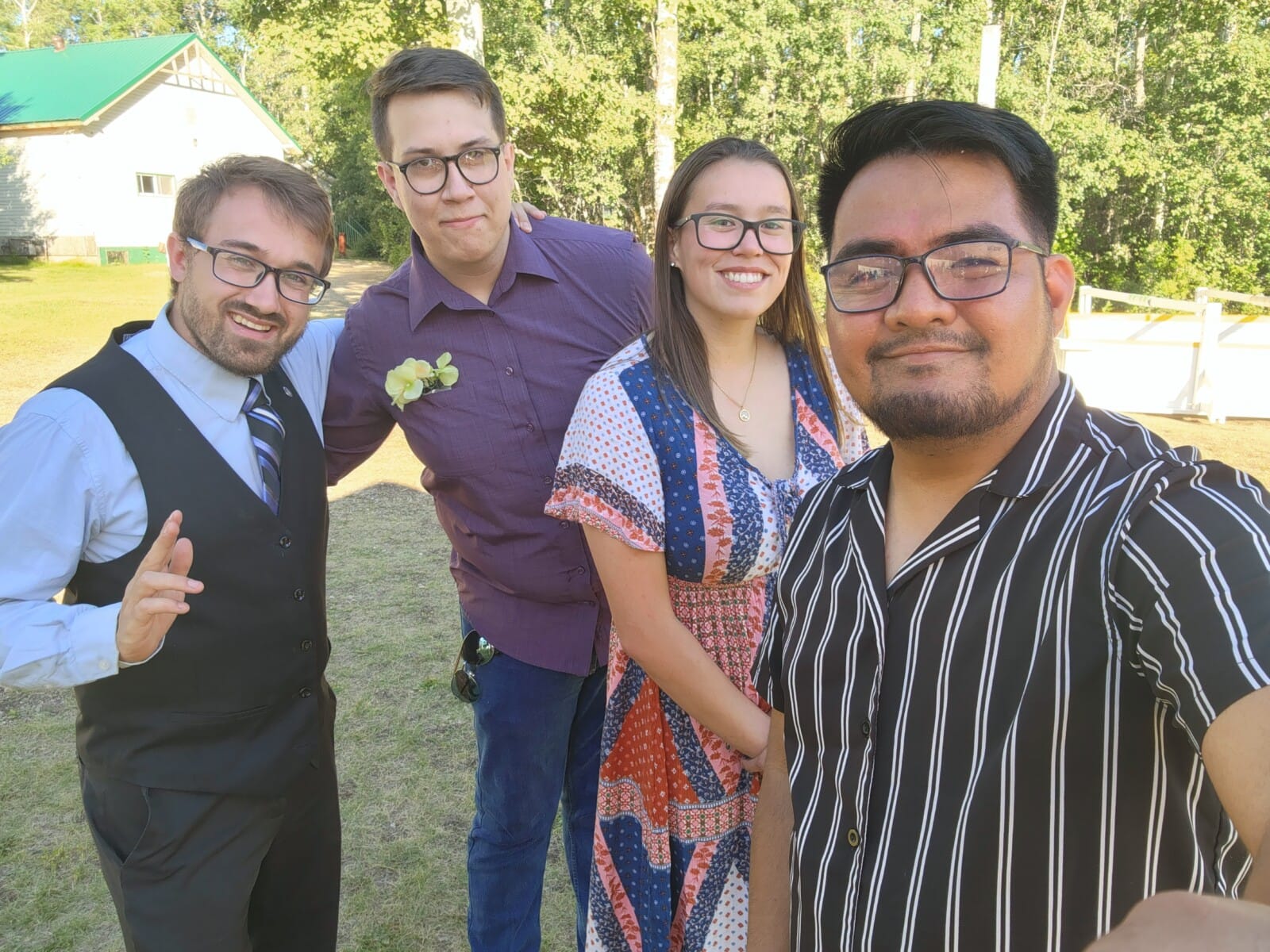
Since he has begun his pastoral internship in the archdiocese, RJ has taken a leading role with Camp St. Martin and in the archdiocese’s Office of Evangelization and Catechesis. This latter role has especially enabled RJ to step out of his comfort zone, to help organize workshops and retreats, and prepare a variety of programs related to evangelization and helping others grow in their faith.
What he’s learned particularly through his time in the archdiocese is that discernment is a lifelong process, and to serve God one must be ready to continually be challenged.
“Discernment is a continuous process. It is not just reaching a conclusion and deciding on it,” RJ said. “Discernment is working with God (that’s where prayer comes in), and working towards your goal – to actualize and reach that point of decision, and to do it not because it’s what I want, but it’s what God wants.
“One thing I’ve learned is that to do what makes you happy is a luxury, but you’re obligated to do what inspires you. If it inspires you to help other people by being a priest, to be God’s tool for evangelization, so be it. It’s a moral obligation to pursue it.”
RJ is now into his second year with our archdiocese, with hopes of being ordained as a deacon and priest here in the near future. While it has been a long journey for the 33-year-old, with many twists and turns, his goal remains the same: to one day serve as a priest in Christ’s Church.
“The hope and the goal is still the same: to become a priest. Since the time of my youth to this moment, I really am still very much excited and looking forward to becoming a priest, to serving the people. I don’t so much care about the time it will take. It’s not my time; it’s God’s time. And I’m open to whatever God gives me.”
